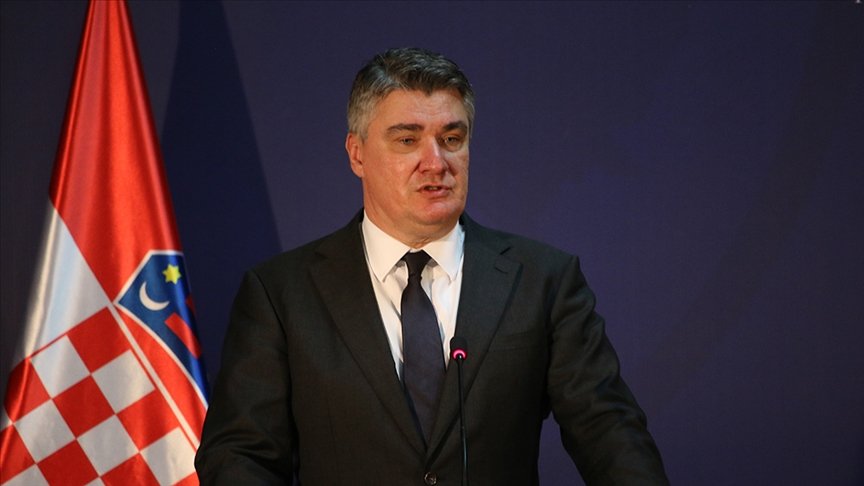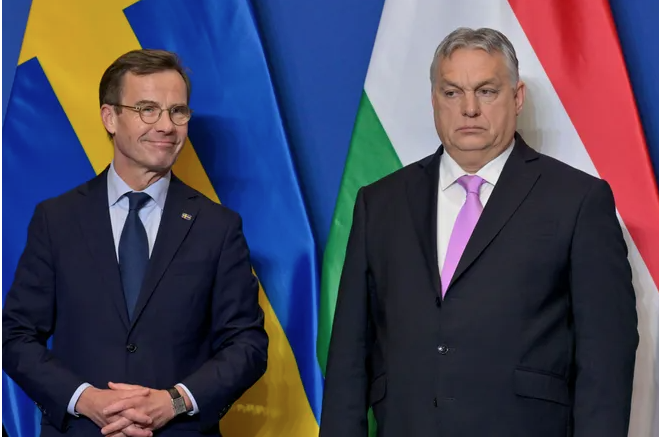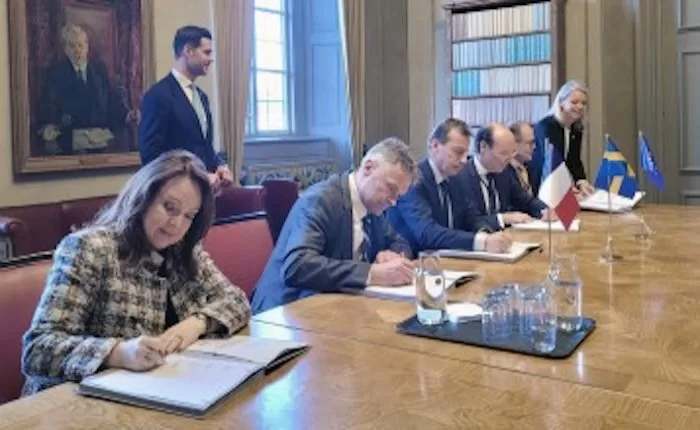“Our only condition for not vetoing Finland and Sweden’s membership in NATO is the resolution of the reform of the electoral law in Bosnia and Herzegovina, which has not been finalized,” Croatian President Zoran Milanovic said.

In Croatia, Finland and Sweden’s NATO accession process has sparked controversy between President Zoran Milanovic and the government.
- The European Union posted a trade deficit of 27.7 billion euros
- AP: China has jailed more than 10,000 Uighurs on charges of “terrorism.”
Milanovic said Croatia’s only condition for not vetoing Finland and Sweden’s NATO membership is to resolve the “reform of the electoral law” in Bosnia and Herzegovina, which has failed to reach an end.
Croatian Parliament Speaker Gordan Jandrokovic said vetoing Finland and Sweden’s NATO membership would damage the country’s international position and reputation, which would do no good to Croats in Bosnia and Herzegovina.
Croatian Foreign Minister Radman backs Finland, Sweden to NATO membership
Croatian Foreign Minister Gordan Grlic Radman answered questions from members of the press in Berlin, where he was attending the Informal Meeting of NATO Foreign Ministers.
“We support Finland and Sweden’s NATO membership. These two countries are common countries with the same values as us. Therefore, we will continue to support the NATO membership process of both countries.”
“The government can call for Milanovic’s dismissal”
Foreign policy analyst Denis Avdagic told Croatian Radio and Television (HRT) that Milanovic’s exit from Finland and Sweden could cause him major problems and that he did not have the authority to stop the two countries’ accession process.
“Prime Minister Plenkovic and the majority government can call for Milanovic’s removal. The reason would be Milanovic’s veto statement. I hope that the government and the President can rally around a common consensus, taking into account the national interests of the country,” he said.
Negotiations on reform of electoral law in Bosnia and Herzegovina
In Sarajevo, the capital of Bosnia and Herzegovina, negotiations on the reform of the electoral law, which were initiated with a European Union (EU) delegation, ended without any results.
Bosnia and Herzegovina political party representatives, EU Foreign Affairs Office (EEAS) Director Angelina Eichhorst and US Ambassador to Sarajevo Michael Murphy participated as mediators in the Bosnia and Herzegovina election law reform talks.
Croatian President Milanovic then argued that the essence of the Dayton Peace Agreement was not understood, saying, “They do not accept that all three nations are constituent and equal, they do not want to accept the legitimate representation of Croats in the state system of Bosnia and Herzegovina.”
Demand for electoral reform in Bosnia and Herzegovina
Two members of the presidency, one Bosniak and the other Croat, are elected by citizens of the Federation of Bosnia and Herzegovina, while the third member is elected by citizens living in the Entity of Republika Srpska.
Dragan Covic, who lost to Zeljko Komsic in the last presidential council election, had demanded a new electoral reform in the country, claiming that Komsic was elected by the votes of Bosniaks in the Federation of Bosnia and Herzegovina.




